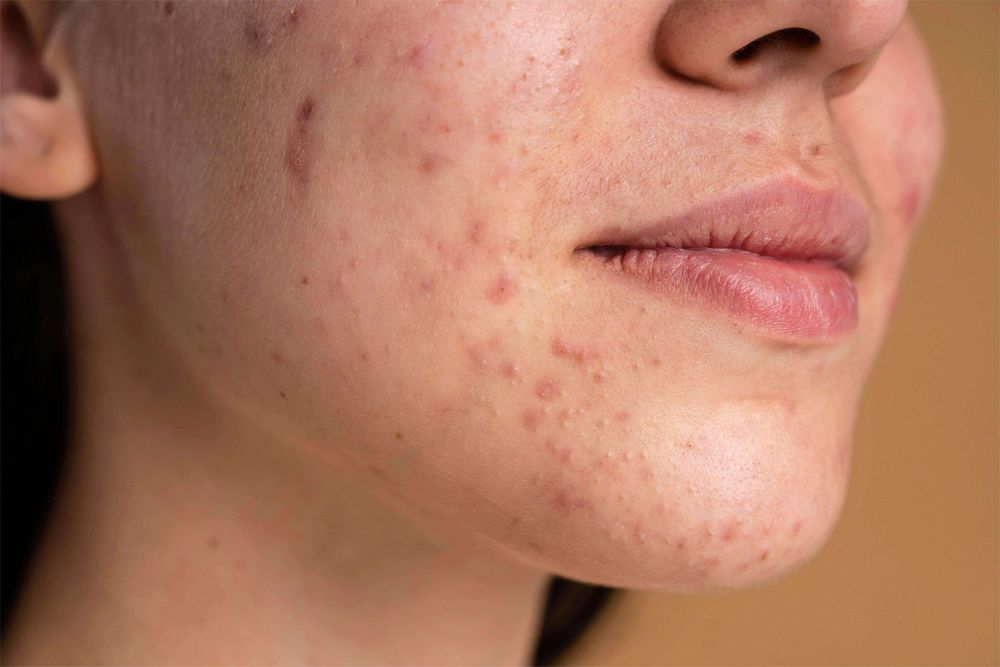Av. das Nações Unidas, 14.401 - Setor C Torre Tarumã - Conjunto 1607 - Chácara Santo Antônio | São Paulo - SP | 04794-000 | Brasil
+55 (11) 2362-0094 | 2362-0095 | 94737-7337
Demystifying Acne
We explain what you need to know about this still stigmatizing disease.

Dra. Andrea Masada
28/07/2021

What is acne and what are its causes?
Acne is a skin disease resulting from the inflammatory process of the sebaceous glands and follicles that, when clogged, cause pimples and even cysts on the face, back, neck and shoulders. It commonly appears in puberty with the onset of hormone production and may continue into adulthood - or even appear during this period. It mainly affects male adolescents and adult women.
This condition can worsen during the menstrual period, stressful situations, and winter, so pay extra attention during this cold season, especially because acne-prone skin is sensitive.
In addition to the physical impacts, the outbreak of lesions can directly affect self-esteem. Some studies link the disease to depression or its worsening. Therefore, it is crucial to seek professional help in any age group.
Acne and food
Food is a recurrent subject when we talk about acne. There are many questions about the appearance of acne associated with specific foods, among many reports found on the internet. But we need to be cautious: so far, the most recent, good-quality studies have indeed found a connection between the presence of acne and the consumption of high glycemic index foods, and some more recent ones associate it with diets with higher intakes of fats, sugar, and milk.
However, a positive association does not imply cause and effect. Although we cannot say that this or that kind of food causes acne, we can say that, among all the factors that do cause acne, certain foods can contribute to the condition. Therefore, it is essential to ask a dermatologist to have an overview of your case and, if necessary, consult a nutritionist and confirm the presence or absence of food allergies and other sensitivities - ensuring expanded care of your health.
Did you know that there is adult female acne?
Adult female acne is the name given to acne that especially occurs in women over 25 years of age. It can be a continuation of an existing condition in adolescence or appear in adulthood, and it is more common than it seems.
AMA is mainly associated with hyperandrogenism (increased production of testosterone, androgen hormone), which may be linked to other symptoms such as alopecia, infertility, psychological dysfunction, etc.
One of its central causes is Polycystic Ovary Syndrome, which has as one of its manifestations the increased production of testosterone, stimulating the sebaceous glands to produce more oil on the skin. The same happens when there is a period of psychological stress: Stress causes the release of cortisol, a hormone associated with increased testosterone production, resulting in the same effect.
Therefore, it is important to avoid self-medication - which can also lead to worsening of acne - but instead, make an appointment with a dermatologist so that the matter can be evaluated as a whole, taking into account the genetic aspects of each individual.
Take care of yourself!
Acne is a multifactorial disease that affects thousands of people and requires special attention for the correct diagnosis, adequate treatment, and possible referrals for a thorough treatment of your health.
